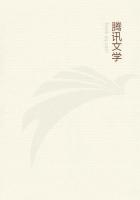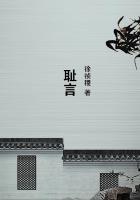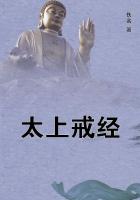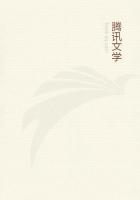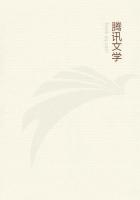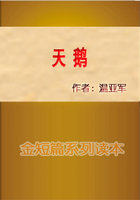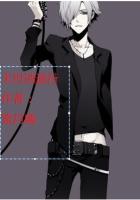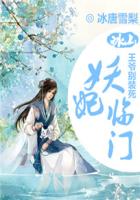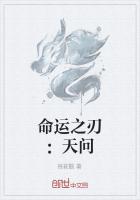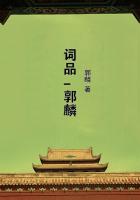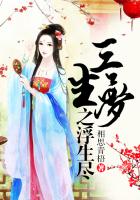Samuel Butler was born on the 4th December,1835,at the Rectory,Langar,near Bingham,in Nottinghamshire.His father was the Rev.
Thomas Butler,then Rector of Langar,afterwards one of the canons of Lincoln Cathedral,and his mother was Fanny Worsley,daughter of John Philip Worsley of Arno's Vale,Bristol,sugar-refiner.His grandfather was Dr.Samuel Butler,the famous headmaster of Shrewsbury School,afterwards Bishop of Lichfield.The Butlers are not related either to the author of 'Hudibras',or to the author of the 'Analogy',or to the present Master of Trinity College,Cambridge.
Butler's father,after being at school at Shrewsbury under Dr.Butler,went up to St.John's College,Cambridge;he took his degree in 1829,being seventh classic and twentieth senior optime;he was ordained and returned to Shrewsbury,where he was for some time assistant master at the school under Dr.Butler.He married in 1832and left 1Shrewsbury for Langar.He was a learned botanist,and made a collection of dried plants which he gave to the Town Museum of Shrewsbury.
Butler's childhood and early life were spent at Langar among the surroundings of an English country rectory,and his education was begun by his father.In 1843,when he was only eight years old,the first great event in his life occurred;the family,consisting of his father and mother,his two sisters,his brother and himself,went to Italy.The South-Eastern Railway stopped at Ashford,whence they travelled to Dover in their own carriage;the carriage was put on board the steamboat,they crossed the Channel,and proceeded to Cologne,up the Rhine to Basle and on through Switzerland into Italy,through Parma,where Napoleon's widow was still reigning,Modena,Bologna,Florence,and so to Rome.They had to drive where there was no railway,and there was then none in all Italy except between Naples and Castellamare.They seemed to pass a fresh custom-house every day,but,by tipping the searchers,generally got through without inconvenience.The bread was sour and the Italian butter rank and cheesy--often uneatable.Beggars ran after the carriage all day long,and when they got nothing jeered at the travellers and called them heretics.They spent half the winter in Rome,and the children were taken up to the top of St.Peter's as a treat to celebrate their father's birthday.In the Sistine Chapel they saw the cardinals kiss the toe of Pope Gregory XVI.,and in the Corso,in broad daylight,they saw a monk come rolling down a staircase like a sack of potatoes,bundled into the street by a man and his wife.The second half of the winter was spent in Naples.This early introduction to the land which he always thought of and often referred to as his second country made an ineffaceable impression upon him.
In January,1846,he went to school at Allesley,near Coventry,under the Rev.E.Gibson.He seldom referred to his life there,though sometimes he would say something that showed he had not forgotten all about it.For instance,in 1900,Mr.Sydney C.Cockerell,now the Director of the Fitzwilliam Museum,Cambridge,showed him a medieval missal,laboriously illuminated.He found that it fatigued him to look at it,and said that such books ought never to be made.
Cockerell replied that such books relieved the tedium of divine service,on which Butler made a note ending thus:
Give me rather a robin or a peripatetic cat like the one whose loss the parishioners of St.Clement Danes are still deploring.When Iwas at school at Allesley the boy who knelt opposite me at morning prayers,with his face not more than a yard away from mine,used to blow pretty little bubbles with his saliva which he would send sailing off the tip of his tongue like miniature soap bubbles;they very soon broke,but they had a career of a foot or two.I never saw anyone else able to get saliva bubbles right away from him and,though I have endeavoured for some fifty years and more to acquire the art,I never yet could start the bubble off my tongue without its bursting.Now things like this really do relieve the tedium of church,but no missal that I have ever seen will do anything except increase it.
In 1848he left Allesley and went to Shrewsbury under the Rev.B.H.Kennedy.Many of the recollections of his school life at Shrewsbury are reproduced for the school life of Ernest Pontifex at Roughborough in 'The Way of All Flesh',Dr.Skinner being Dr.Kennedy.
During these years he first heard the music of Handel;it went straight to his heart and satisfied a longing which the music of other composers had only awakened and intensified.He became as one of the listening brethren who stood around "when Jubal struck the chorded shell"in the 'Song for Saint Cecilia's Day':
Less than a god,they thought,there could not dwell Within the hollow of that shell That spoke so sweetly and so well.
This was the second great event in his life,and henceforward Italy and Handel were always present at the bottom of his mind as a kind of double pedal to every thought,word,and deed.Almost the last thing he ever asked me to do for him,within a few days of his death,was to bring 'Solomon'that he might refresh his memory as to the harmonies of "With thee th'unsheltered moor I'd trace."He often tried to like the music of Bach and Beethoven,but found himself compelled to give them up--they bored him too much.Nor was he more successful with the other great composers;Haydn,for instance,was a sort of Horace,an agreeable,facile man of the world,while Mozart,who must have loved Handel,for he wrote additional accompaniments to the 'Messiah',failed to move him.It was not that he disputed the greatness of these composers,but he was out of sympathy with them,and never could forgive the last two for having led music astray from the Handel tradition,and paved the road from Bach to Beethoven.
Everything connected with Handel interested him.He remembered old Mr.Brooke,Rector of Gamston,North Notts,who had been present at the Handel Commemoration in 1784,and his great-aunt,Miss Susannah Apthorp,of Cambridge,had known a lady who had sat upon Handel's knee.He often regretted that these were his only links with "the greatest of all composers.
Besides his love for Handel he had a strong liking for drawing,and,during the winter of 1853-4,his family again took him to Italy,where,being now eighteen,he looked on the works of the old masters with intelligence.
In October,1854,he went into residence at St.John's College,Cambridge.He showed no aptitude for any particular branch of academic study,nevertheless he impressed his friends as being likely to make his mark.Just as he used reminiscences of his own schooldays at Shrewsbury for Ernest's life at Roughborough,so he used reminiscences of his own Cambridge days for those of Ernest.
When the Simeonites,in 'The Way of All Flesh',"distributed tracts,dropping them at night in good men's letter boxes while they slept,their tracts got burnt or met with even worse contumely."Ernest Pontifex went so far as to parody one of these tracts and to get a copy of the parody "dropped into each of the Simeonites'boxes."Ernest did this in the novel because Butler had done it in real life.
Mr.A.T.Bartholomew,of the University Library,has found,among the Cambridge papers of the late J.Willis Clark's collection,three printed pieces belonging to the year 1855bearing on the subject.He speaks of them in an article headed "Samuel Butler and the Simeonites,"and signed A.T.B.in the 'Cambridge Magazine',1st March,1913;the first is "a genuine Simeonite tract;the other two are parodies.All three are anonymous.At the top of the second parody is written 'By S.Butler,March 31.'"The article gives extracts from the genuine tract and the whole of Butler's parody.
Besides parodying Simeonite tracts,Butler wrote various other papers during his undergraduate days,some of which,preserved by one of his contemporaries,who remained a lifelong friend,the Rev.Canon Joseph M'Cormick,now Rector of St.James's,Piccadilly,are reproduced in 'The Note-Books of Samuel Butler'(1912).
He also steered the Lady Margaret first boat,and Canon M'Cormick told me of a mishap that occurred on the last night of the races in 1857.Lady Margaret had been head of the river since 1854,Canon M'Cormick was rowing 5,Philip Pennant Pearson (afterwards P.Pennant)was 7,Canon Kynaston,of Durham (whose name formerly was Snow),was stroke,and Butler was cox.When the cox let go of the bung at starting,the rope caught in his rudder lines,and Lady Margaret was nearly bumped by Second Trinity.They escaped,however,and their pursuers were so much exhausted by their efforts to catch them that they were themselves bumped by First Trinity at the next corner.Butler wrote home about it:
11March,1857.Dear Mamma:My foreboding about steering was on the last day nearly verified by an accident which was more deplorable than culpable the effects of which would have been ruinous had not the presence of mind of No.7in the boat rescued us from the very jaws of defeat.The scene is one which never can fade from my remembrance and will be connected always with the gentlemanly conduct of the crew in neither using opprobrious language nor gesture towards your unfortunate son but treating him with the most graceful forbearance;for in most cases when an accident happens which in itself is but slight,but is visited with serious consequences,most people get carried away with the impression created by the last so as to entirely forget the accidental nature of the cause and if we had been quite bumped I should have been ruined,as it is I get praise for coolness and good steering as much as and more than blame for my accident and the crew are so delighted at having rowed a race such as never was seen before that they are satisfied completely.All the spectators saw the race and were delighted;another inch and I should never have held up my head again.One thing is safe,it will never happen again.
The 'Eagle',"a magazine supported by members of St.John's College,"issued its first number in the Lent term of 1858;it contains an article by Butler "On English Composition and Other Matters,"signed "Cellarius":
Most readers will have anticipated me in admitting that a man should be clear of his meaning before he endeavours to give it any kind of utterance,and that,having made up his mind what to say,the less thought he takes how to say it,more than briefly,pointedly and plainly,the better.
From this it appears that,when only just over twenty-two,Butler had already discovered and adopted those principles of writing from which he never departed.
In the fifth number of the 'Eagle'is an article,"Our Tour,"also signed "Cellarius";it is an account of a tour made in June,1857,with a friend whose name he Italianized into Giuseppe Verdi,through France into North Italy,and was written,so he says,to show how they got so much into three weeks and spent only 25pounds;they did not,however,spend quite so much,for the article goes on,after bringing them back to England,"Next day came safely home to dear old St.John's,cash in hand 7d."{1}
Butler worked hard with Shilleto,an old pupil of his grandfather,and was bracketed 12th in the Classical Tripos of 1858.Canon M'Cormick told me that he would no doubt have been higher but for the fact that he at first intended to go out in mathematics;it was only during the last year of his time that he returned to the classics,and his being so high as he was spoke well for the classical education of Shrewsbury.
It had always been an understood thing that he was to follow in the footsteps of his father and grandfather and become a clergyman;accordingly,after taking his degree,he went to London and began to prepare for ordination,living and working among the poor as lay assistant under the Rev.Philip Perring,Curate of St.James's,Piccadilly,an old pupil of Dr.Butler at Shrewsbury.{2}Placed among such surroundings,he felt bound to think out for himself many theological questions which at this time were first presented to him,and,the conclusion being forced upon him that he could not believe in the efficacy of infant baptism,he declined to be ordained.
It was now his desire to become an artist;this,however,did not meet with the approval of his family,and he returned to Cambridge to try for pupils and,if possible,to get a fellowship.He liked being at Cambridge,but there were few pupils and,as there seemed to be little chance of a fellowship,his father wished him to come down and adopt some profession.A long correspondence took place in the course of which many alternatives were considered.There are letters about his becoming a farmer in England,a tutor,a homoepathic doctor,an artist,or a publisher,and the possibilities of the army,the bar,and diplomacy.Finally it was decided that he should emigrate to New Zealand.His passage was paid,and he was to sail in the 'Burmah',but a cousin of his received information about this vessel which caused him,much against his will,to get back his passage money and take a berth in the 'Roman Emperor',which sailed from Gravesend on one of the last days of September,1859.On that night,for the first time in his life,he did not say his prayers.
"I suppose the sense of change was so great that it shook them quietly off.I was not then a sceptic;I had got as far as disbelief in infant baptism,but no further.I felt no compunction of conscience,however,about leaving off my morning and evening prayers--simply I could no longer say them."The 'Roman Emperor',after a voyage every incident of which interested him deeply,arrived outside Port Lyttelton.The captain shouted to the pilot who came to take them in:
"Has the 'Robert Small'arrived?"
"No,"replied the pilot,"nor yet the 'Burmah'."And Butler,writing home to his people,adds the comment:"You may imagine what I felt."The 'Burmah'was never heard of again.
He spent some time looking round,considering what to do and how to employ the money with which his father was ready to supply him,and determined upon sheep-farming.He made several excursions looking for country,and ultimately took up a run which is still called Mesopotamia,the name he gave it because it is situated among the head-waters of the Rangitata.
It was necessary to have a horse,and he bought one for 55pounds,which was not considered dear.He wrote home that the horse's name was "Doctor":"I hope he is a Homoeopathist."From this,and from the fact that he had already contemplated becoming a homoeopathic doctor himself,I conclude that he had made the acquaintance of Dr.Robert Ellis Dudgeon,the eminent homoeopathist,while he was doing parish work in London.After his return to England Dr.Dudgeon was his medical adviser,and remained one of his most intimate friends until the end of his life.Doctor,the horse,is introduced into 'Erewhon Revisited';the shepherd in Chapter XXVI tells John Hicks that Doctor "would pick fords better than that gentleman could,Iknow,and if the gentleman fell off him he would just stay stock still."Butler carried on his run for about four and a half years,and the open-air life agreed with him;he ascribed to this the good health he afterwards enjoyed.The following,taken from a notebook he kept in the colony and destroyed,gives a glimpse of one side of his life there;he preserved the note because it recalled New Zealand so vividly.
April,1861.It is Sunday.We rose later than usual.There are five of us sleeping in the hut.I sleep in a bunk on one side of the fire;Mr.Haast,{3}a German who is making a geological survey of the province,sleeps upon the opposite one;my bullock-driver and hut-keeper have two bunks at the far end of the hut,along the wall,while my shepherd lies in the loft among the tea and sugar and flour.
It was a fine morning,and we turned out about seven o'clock.
The usual mutton and bread for breakfast with a pudding made of flour and water baked in the camp oven after a joint of meat--Yorkshire pudding,but without eggs.While we were at breakfast a robin perched on the table and sat there a good while pecking at the sugar.
We went on breakfasting with little heed to the robin,and the robin went on pecking with little heed to us.After breakfast Pey,my bullock-driver,went to fetch the horses up from a spot about two miles down the river,where they often run;we wanted to go pig-hunting.
I go into the garden and gather a few peascods for seed till the horses should come up.Then Cook,the shepherd,says that a fire has sprung up on the other side of the river.Who could have lit it?
Probably someone who had intended coming to my place on the preceding evening and has missed his way,for there is no track of any sort between here and Phillips's.In a quarter of an hour he lit another fire lower down,and by that time,the horses having come up,Haast and myself--remembering how Dr.Sinclair had just been drowned so near the same spot--think it safer to ride over to him and put him across the river.The river was very low and so clear that we could see every stone.On getting to the river-bed we lit a fire and did the same on leaving it;our tracks would guide anyone over the intervening ground.
Besides his occupation with the sheep,he found time to play the piano,to read and to write.In the library of St.John's College,Cambridge,are two copies of the Greek Testament,very fully annotated by him at the University and in the colony.He also read the 'Origin of Species',which,as everyone knows,was published in 1859.He became "one of Mr.Darwin's many enthusiastic admirers,and wrote a philosophic dialogue (the most offensive form,except poetry and books of travel into supposed unknown countries,that even literature can assume)upon the 'Origin of Species'"('Unconscious Memory',close of Chapter I).This dialogue,unsigned,was printed in the 'Press',Canterbury,New Zealand,on 20th December,1862.Acopy of the paper was sent to Charles Darwin,who forwarded it to a,presumably,English editor with a letter,now in the Canterbury Museum,New Zealand,speaking of the dialogue as "remarkable from its spirit and from giving so clear and accurate an account of Mr.D's theory."It is possible that Butler himself sent the newspaper containing his dialogue to Mr.Darwin;if so he did not disclose his name,for Darwin says in his letter that he does not know who the author was.Butler was closely connected with the 'Press',which was founded by James Edward FitzGerald,the first Superintendent of the Province,in May,1861;he frequently contributed to its pages,and once,during FitzGerald's absence,had charge of it for a short time,though he was never its actual editor.The 'Press'reprinted the dialogue and the correspondence which followed its original appearance on 8th June,1912.
On 13th June,1863,the 'Press'printed a letter by Butler signed "Cellarius"and headed "Darwin among the Machines,"reprinted in 'The Note-Books of Samuel Butler'(1912).The letter begins:
"Sir:There are few things of which the present generation is more justly proud than of the wonderful improvements which are daily taking place in all sorts of mechanical appliances";and goes on to say that,as the vegetable kingdom was developed from the mineral,and as the animal kingdom supervened upon the vegetable,"so now,in the last few ages,an entirely new kingdom has sprung up of which we as yet have only seen what will one day be considered the antediluvian types of the race."He then speaks of the minute members which compose the beautiful and intelligent little animal which we call the watch,and of how it has gradually been evolved from the clumsy brass clocks of the thirteenth century.Then comes the question:Who will be man's successor?To which the answer is:
We are ourselves creating our own successors.Man will become to the machine what the horse and the dog are to man;the conclusion being that machines are,or are becoming,animate.
In 1863Butler's family published in his name 'A First Year in Canterbury Settlement',which,as the preface states,was compiled from his letters home,his journal and extracts from two papers contributed to the 'Eagle'.These two papers had appeared in the 'Eagle'as three articles entitled "Our Emigrant"and signed "Cellarius."The proof-sheets of the book went out to New Zealand for correction and were sent back in the Colombo,which was as unfortunate as the 'Burmah',for she was wrecked.The proofs,however,were fished up,though so nearly washed out as to be almost undecipherable.Butler would have been just as well pleased if they had remained at the bottom of the Indian Ocean,for he never liked the book and always spoke of it as being full of youthful priggishness;but I think he was a little hard upon it.Years afterwards,in one of his later books,after quoting two passages from Mr.Grant Allen and pointing out why he considered the second to be a recantation of the first,he wrote:"When Mr.Allen does make stepping-stones of his dead selves he jumps upon them to some tune."And he was perhaps a little inclined to treat his own dead self too much in the same spirit.
Butler did very well with the sheep,sold out in 1864,and returned via Callao to England.He travelled with three friends whose acquaintance he had made in the colony;one was Charles Paine Pauli,to whom he dedicated 'Life and Habit'.He arrived in August,1864,in London,where he took chambers consisting of a sitting-room,a bedroom,a painting-room and a pantry,at 15,Clifford's Inn,second floor (north).The net financial result of the sheep-farming and the selling out was that he practically doubled his capital,that is to say he had about 8,000pounds.This he left in New Zealand,invested on mortgage at 10per cent.,the then current rate in the colony;it produced more than enough for him to live upon in the very simple way that suited him best,and life in the Inns of Court resembles life at Cambridge in that it reduces the cares of housekeeping to a minimum;it suited him so well that he never changed his rooms,remaining there thirty-eight years till his death.
He was now his own master and able at last to turn to painting.He studied at the art school in Streatham Street,Bloomsbury,which had formerly been managed by Henry Sass,but,in Butler's time,was being carried on by Francis Stephen Cary,son of the Rev.Henry Francis Cary,who had been a school-fellow of Dr.Butler at Rugby,and is well known as the translator of Dante and the friend of Charles Lamb.
Among his fellow-students was Mr.H.R.Robertson,who told me that the young artists got hold of the legend,which is in some of the books about Lamb,that when Francis Stephen Cary was a boy and there was a talk at his father's house as to what profession he should take up,Lamb,who was present,said:
"I should make him an apo-po-pothe-Cary."
They used to repeat this story freely among themselves,being,no doubt,amused by the Lamb-like pun,but also enjoying the malicious pleasure of hinting that it might have been as well for their art education if the advice of the gentle humorist had been followed.
Anyone who wants to know what kind of an artist F.S.Cary was can see his picture of Charles and Mary Lamb in the National Portrait Gallery.
In 1865Butler sent from London to New Zealand an article entitled "Lucubratio Ebria,"which was published in the 'Press'of 29th July,1865.It treated machines from a point of view different from that adopted in "Darwin among the Machines,"and was one of the steps that led to 'Erewhon'and ultimately to 'Life and Habit'.The article is reproduced in 'The Note-Books of Samuel Butler'(1912).
Butler also studied art at South Kensington,but by 1867he had begun to go to Heatherley's School of Art in Newman Street,where he continued going for many years.He made a number of friends at Heatherley's,and among them Miss Eliza Mary Anne Savage.There also he first met Charles Gogin,who,in 1896,painted the portrait of Butler which is now in the National Portrait Gallery.He described himself as an artist in the Post Office Directory,and between 1868and 1876exhibited at the Royal Academy about a dozen pictures,of which the most important was "Mr.Heatherley's Holiday,"hung on the line in 1874.He left it by his will to his college friend Jason Smith,whose representatives,after his death,in 1910,gave it to the nation,and it is now in the National Gallery of British Art.
Mr.Heatherley never went away for a holiday;he once had to go out of town on business and did not return till the next day;one of the students asked him how he had got on,saying no doubt he had enjoyed the change and that he must have found it refreshing to sleep for once out of London.
"No,"said Heatherley,"I did not like it.Country air has no body."The consequence was that,whenever there was a holiday and the school was shut,Heatherley employed the time in mending the skeleton;Butler's picture represents him so engaged in a corner of the studio.
In this way he got his model for nothing.Sometimes he hung up a looking-glass near one of his windows and painted his own portrait.
Many of these he painted out,but after his death we found a little store of them in his rooms,some of the early ones very curious.Of the best of them one is now at Canterbury,New Zealand,one at St.John's College,Cambridge,and one at the Schools,Shrewsbury.

